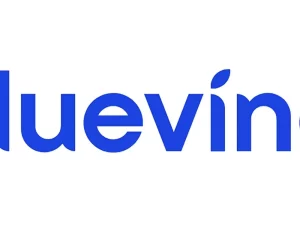Student loans play a vital role in supporting students’ pursuit of higher education by providing the necessary financial resources. These loans can be used for a wide range of educational expenses, empowering students to access educational opportunities and achieve their academic goals. Let’s explore in detail the various uses and aspects of student loans:
1. Tuition Fees: Student loans are primarily intended to cover the cost of tuition fees charged by educational institutions. Tuition fees can vary significantly depending on factors such as the type of institution (public or private), the specific program of study, and the location. Student loans ensure that individuals can afford the educational programs they desire and enroll in the courses necessary for their academic advancement.
2. Books and Supplies: One of the significant expenses for students is the cost of textbooks, reference materials, and other supplies required for their studies. Student loans can be utilized to purchase these academic resources. As textbooks and materials evolve with each academic term, student loans provide the flexibility to obtain the latest editions and necessary supplementary materials.
3. Room and Board: Housing expenses are a crucial consideration for students, particularly those who need to live on or near campus. Student loans can cover the costs associated with on-campus housing options, including dormitories or residential halls. Additionally, loans can assist in paying for off-campus housing, such as apartments or rental properties. Furthermore, student loans can help cover expenses related to utilities, furnishings, and meal plans, ensuring students have a comfortable living environment while pursuing their studies.
4. Transportation: Commuting to and from educational institutions, as well as engaging in academic activities beyond the campus, often incurs transportation expenses. Student loans can be used to cover these costs, including fuel for personal vehicles, public transportation fares, parking fees, and maintenance expenses. For students participating in internships, co-op programs, or study abroad opportunities, student loans enable them to access these experiences by helping with travel expenses.
5. Technology and Equipment: In the digital age, access to technology and essential equipment is crucial for academic success. Student loans can be employed to acquire computers, laptops, tablets, printers, and other devices necessary for coursework and research. Additionally, loans can support the purchase of software licenses, scientific calculators, specialized equipment, and other technological resources required for specific programs of study.
6. Personal Expenses: While student loans primarily target educational expenses, they can also assist with personal expenses indirectly related to education. These may include clothing, toiletries, groceries, household supplies, and other day-to-day necessities that contribute to a student’s overall well-being and enable them to focus on their studies without financial stress.
7. Study Abroad Programs: Many students choose to participate in study abroad programs to broaden their horizons and gain international exposure. Student loans can be used to finance these programs, covering expenses such as travel costs, accommodation fees, meals, visas, and additional program fees. Study abroad experiences provide unique cultural and academic opportunities, and student loans enable students to embrace these enriching experiences.
8. Medical Expenses: In certain cases, student loans can help cover medical expenses that arise during the course of a student’s education. This may include health insurance premiums, prescription medications, visits to healthcare providers, or medical services not fully covered by existing insurance plans. However, it’s important to note that student loans are primarily focused on educational costs, and managing medical expenses should be done responsibly and within reasonable limits.
9. Research and Projects: Students involved in research projects, independent studies, or specialized programs often require additional financial resources. Student loans can be utilized to cover expenses related to these academic pursuits. This includes funding for laboratory supplies, research materials, fieldwork expenses, data collection tools, software licenses, and equipment necessary for conducting research or completing specialized projects.
10. Certification and Licensing Exams: Certain professions and industries require students to obtain certifications or licenses upon completion of their studies. Student loans can assist with the costs associated with these exams, including registration fees, study materials, and preparatory courses. By covering these expenses, student loans facilitate students’ entry into their chosen careers and help them meet the necessary qualifications and requirements.
11. Online Learning: With the rise of online education and distance learning programs, student loans can also be used to cover expenses related to virtual education. This includes costs associated with online course fees, virtual learning platforms, software subscriptions, and reliable internet connections. Student loans ensure that individuals have access to the necessary resources and technologies for successful online learning experiences.
12. Student Organization Memberships and Activities: Engaging in extracurricular activities, joining student organizations, and participating in campus events are an integral part of the college experience. Student loans can help cover the costs associated with membership fees, event tickets, conference registrations, and other expenses related to student engagement and enrichment.
13. Graduation Expenses: When students approach the culmination of their academic journey, student loans can assist with graduation-related expenses. These may include costs associated with cap and gown rentals or purchases, graduation ceremony tickets, professional photography, and other celebratory items. Student loans ensure that students can commemorate their achievements without financial constraints.
14. Loan Origination Fees and Interest: While not a direct educational expense, student loans also account for loan origination fees and interest charges. Origination fees are administrative fees charged by lenders when processing the loan application, and interest is the cost associated with borrowing the funds. Student loans encompass these fees and interest charges, enabling students to access the necessary financial support for their education. It is important for borrowers to carefully consider the terms and conditions, interest rates, and repayment plans associated with their loans.
15. Loan Consolidation and Refinancing: After graduation, some students choose to consolidate their loans or refinance them to simplify the repayment process or obtain more favorable interest rates and terms. Student loans can also be used to consolidate multiple loans into a single loan, streamlining the repayment process and potentially reducing overall monthly payments. Refinancing allows borrowers to secure a new loan with improved terms, such as a lower interest rate or extended repayment period. It is important to note that the specific uses of student loans can vary depending on the loan type, the policies of the educational institution, and the regulations governing student loan programs in a particular country. It is advisable for students to consult with their school’s financial aid office, loan servicers, or financial advisors to obtain accurate and up-to-date information regarding the eligible uses of student loans.
When considering student loans, it is crucial to borrow responsibly, understanding the terms and conditions, repayment obligations, and the potential impact on future finances. Exploring alternative sources of funding, such as scholarships, grants, and part-time employment, can also help reduce the reliance on student loans. Proper financial planning and budgeting throughout the academic journey are key to managing student loans effectively and minimizing the burden of debt.










